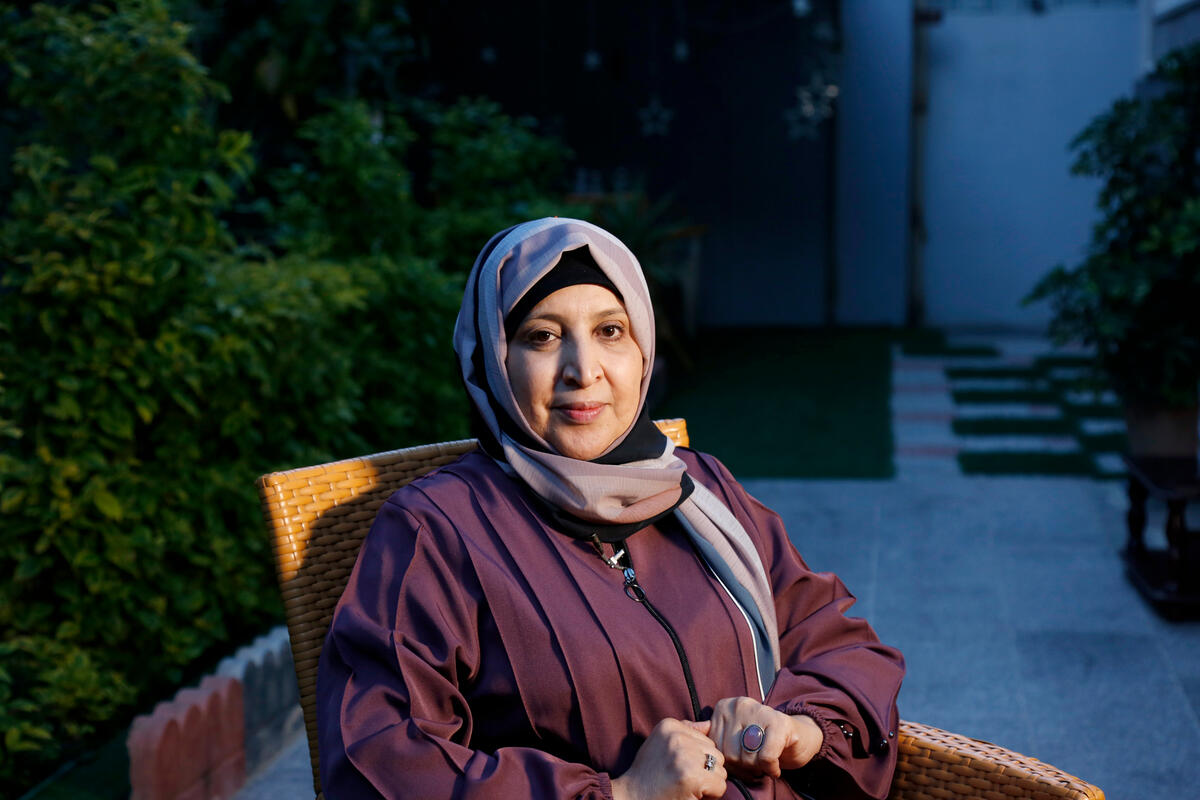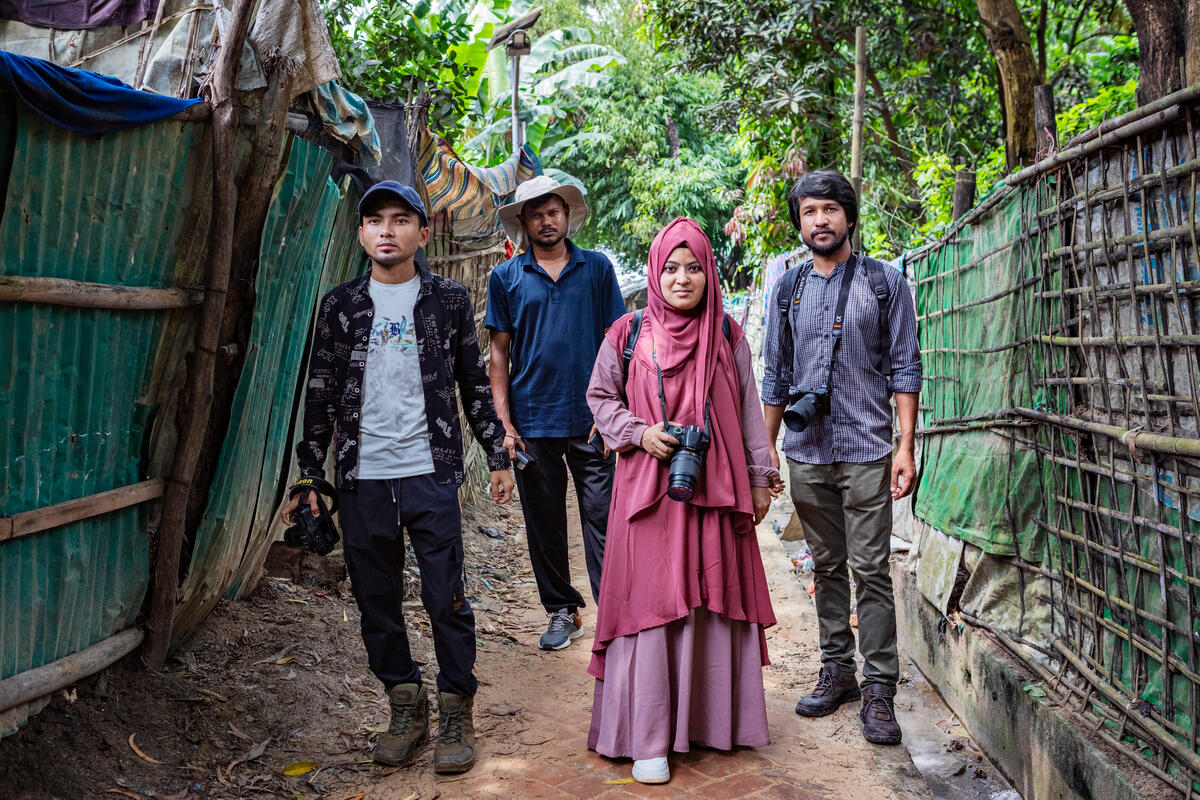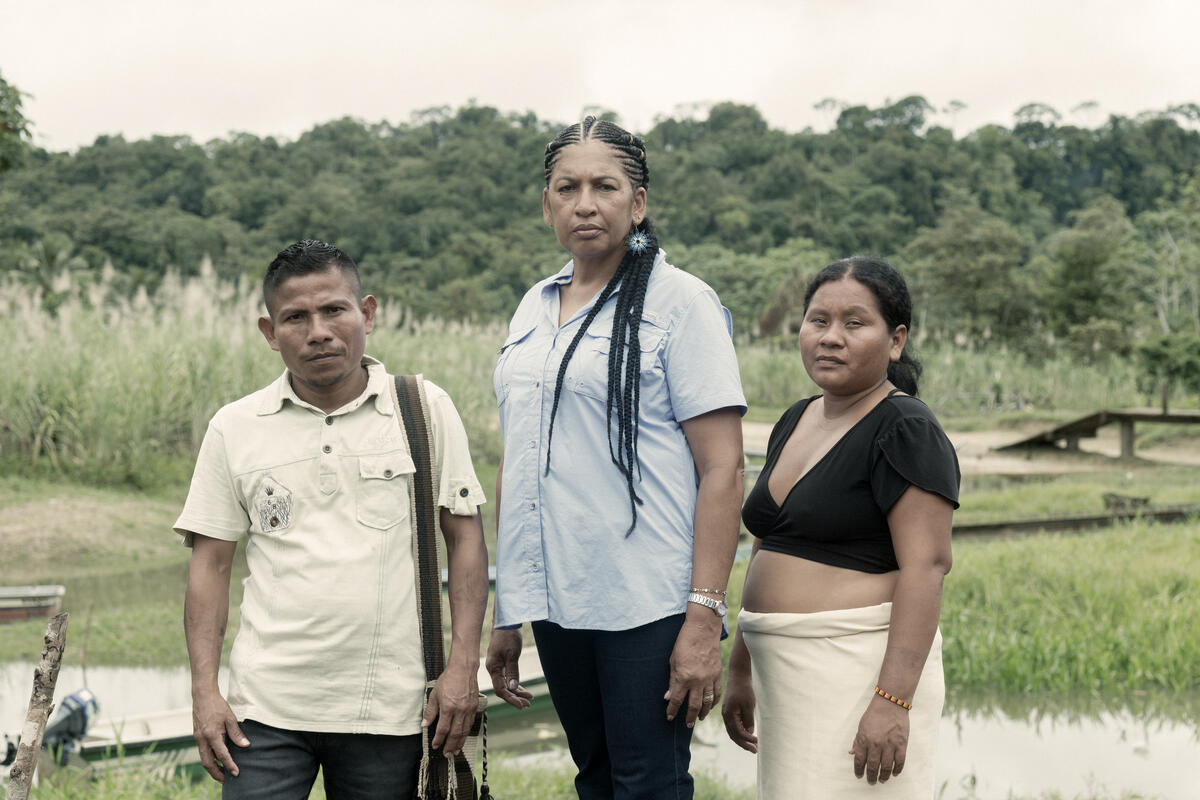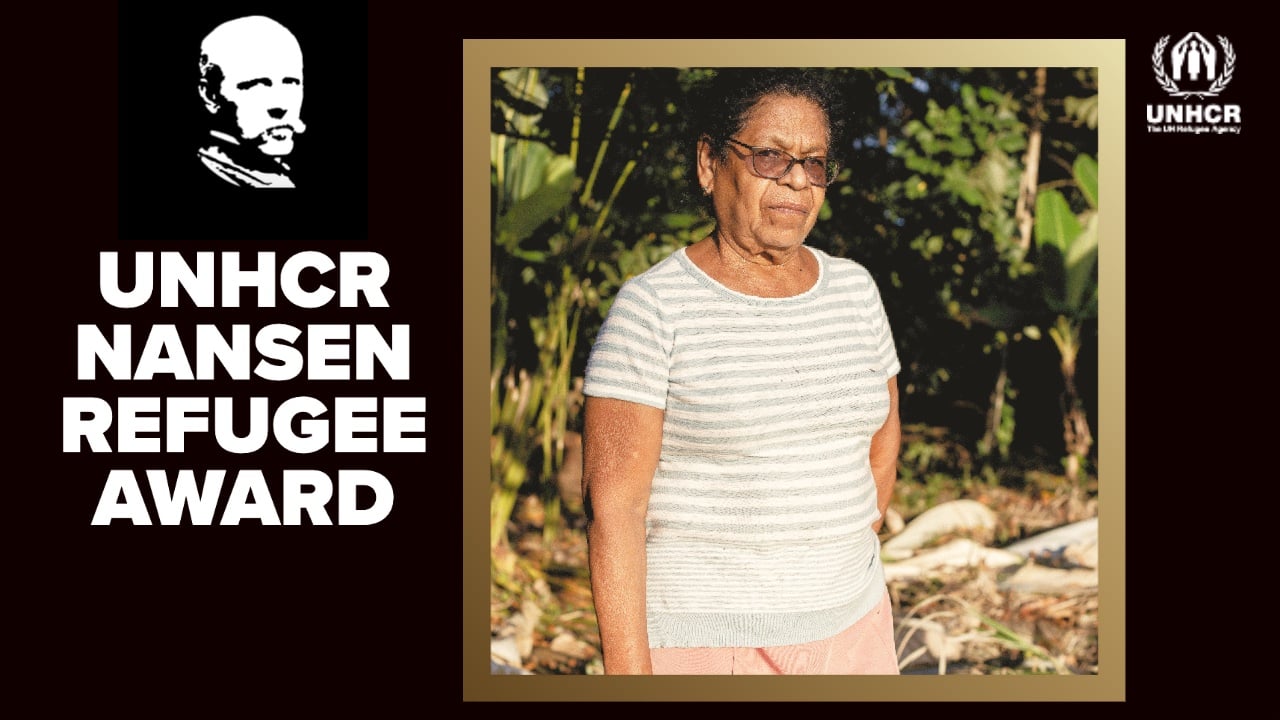"Angel of Burundi" to receive Nansen Refugee Award
"Angel of Burundi" to receive Nansen Refugee Award

GENEVA, April 29 (UNHCR) - For the last 12 years, she's opened her house and heart to more than 10,000 children affected by Burundi's civil war and other conflicts in the region, providing them with safety, love and the chance of a better future.
For her tireless efforts, Marguerite Barankitse, a Burundian humanitarian worker and founder of non-governmental organisation Maison Shalom ("House of Peace"), has been named the winner of this year's Nansen Refugee Award. The award is given annually to individuals or organisations that have distinguished themselves in work on behalf of refugees.
Barankitse, who prefers to be called "Maggy" but has also been hailed as "the Angel of Burundi", started Maison Shalom during the Burundian civil war in 1993. At the time, she was teaching at a local school in her hometown of Ruyigi in the country's east. She recalls the horror of seeing 72 people killed before her eyes that fateful October.
"After the massacre, we were trying to flee, but we also had to bury the dead," said Maggy, walking through a cemetery in Ruyigi. "There were many of them, and we were scared. We looked for a place that would not be easy to find. This was still the bush then. We dug with wheelbarrows, as fast as we could and the 72 people who were killed that day are here, in this mass grave."
She managed to save 25 children, taking them under her wing in the chaos of the conflict. "At the beginning there were 25 children whose parents had been killed, then after one year there were 100, then 500 and now it's more than 10,000. So I began to look for land, and I thought, why don't I use my parents' land?"
Thus Maison Shalom was born, providing a home where orphans and separated children can grow up in "families" - in security, education and love. Today, Maggy and her team run four "children's villages" around the country, as well as a centre for orphans and other vulnerable children in the capital, Bujumbura.
The children learn about health education, how to manage a household and tend to livestock, and how to engage in income-generating projects and apprenticeships. They run a cinema, a public swimming pool, a restaurant, a hairdressing salon and a guesthouse in Ruyigi.
Other projects range from health care provision to HIV/AIDS prevention and family reunification. In addition to orphans and separated children, Maggy has also helped former child soldiers, children with HIV, and young refugees from Rwanda and the Democratic Republic of the Congo.
Maison Shalom has also reached out to Burundian refugees returning from years of exile in Tanzania, helping the women and children to rebuild their lives. In the communes of Kabuyenge, Cendajuru and Giharo, the NGO has worked with returnees and displaced people to establish small income-generating projects like sewing, carpentry and soap making. It has also set up UNHCR-supported carpentry projects for returnees in Gisuru commune, a major area of return.
Maggy's work has been widely recognized. In 2004, she received the Four Freedoms Award from the Franklin and Eleanor Roosevelt Institute, and the Voices of Courage Award from the US-based Women's Commission for Refugee Women and Children. Her other awards include the World's Children's Prize (2003), the Spanish Committee for Aid to Refugees' Juan Maria Bandrés Prize for Asylum Rights Advocates (2003), the North-South Prize (2000), as well as the French government's Human Rights Prize (1998). In 2004, she was awarded an honorary doctorate by the Catholic University of Louvain in Belgium.
The Nansen Refugee Award, created in 1954, is named after Fridtjof Nansen, the celebrated Norwegian polar explorer and the world's first international refugee official. Previous recipients include Eleanor Roosevelt, King Juan Carlos I of Spain, Queen Juliana of the Netherlands, Médecins Sans Frontières and the late Tanzanian President Mwalimu Julius Nyerere. Last year, the award went to the Memorial Human Rights Centre, a Russian non-governmental organization which has helped tens of thousands of refugees and internally displaced people in the Russian Federation.
The award, which includes a US$100,000 grant for a refugee-related project of the recipient's choice, will be officially presented at a ceremony to mark World Refugee Day in Brussels, Belgium, on June 22.








